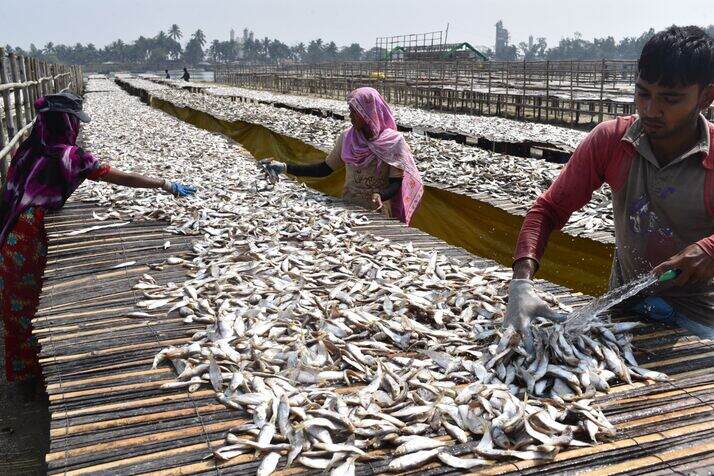Nazirartek’s dried fish village in Cox’s Bazar is an economic hub and a rich cultural heritage site. This region has been deeply intertwined with the dried fish industry for generations, shaping the local way of life, culinary traditions, folk music, and social customs.
A Way of Life and Tradition
The dried fish producers of Nazirartek have been processing fish using the same traditional methods for generations. Every step—from harvesting to drying, preserving, and marketing—is embedded in the familial and social fabric of the community. This industry is not just a livelihood but an integral part of people’s cultural identity.
Contribution to Culinary Heritage
Dried fish holds a special place in Bangladesh’s traditional cuisine. Nazirartek’s dried fish is widespread across the country and is even exported abroad. Local delicacies such as shutki bharta (mashed dried fish), spicy dried fish curries, and other dishes highlight its significance in Bengali gastronomy.
Folk Music and Literature
Folk songs, ballads, and storytelling reflect the lives of Nazirartek’s fishermen. While processing dried fish, fishermen often sing in groups, turning their laborious work into a rhythmic and uplifting experience. Their struggles, aspirations, and traditions have also found a place in the works of local poets and writers.
Festivals and Social Gatherings
Small community festivals mark the beginning and end of the dried fish season. These gatherings bring together fishermen, foster social bonds, and are often accompanied by religious rituals. During these occasions, the entire market takes on a festive atmosphere.
Tourism and Cultural Exchange
Nazirartek’s dried fish village attracts both local and international tourists. These visitors are fascinated by the traditional fish-drying process. Their visits create opportunities for cultural exchange, allowing outsiders to appreciate the unique heritage of the fishing community.
Both government and private initiatives are needed to preserve this legacy so that future generations can continue to experience and celebrate this unique cultural tradition.
By Rajin Saleh
Photo: Polash Shikdar










